Chakib I. (2023).
Agroecology in Normandy: at the crossroads of optimum and adoption for a sustainable future. Mémoire (Master 2 MIDAS) : CIHEAM-IAMM, Montpellier (France). 84 p. Master 2 Thesis. Economics. Programme: Mediterranean farming system design for a sustainable food-system [MIDAS]. Co-accreditation University of Montpellier, Institut Agro Montpellier, CIHEAM-IAMM.
| Titre : | Agroecology in Normandy: at the crossroads of optimum and adoption for a sustainable future |
| Auteurs : | I. Chakib |
| Type de document : | Thèse, Mémoire, Master |
| Année de publication : | 2023 |
| Format : | 84 p. |
| Note générale : | Master 2 Thesis. Economics. Programme: Mediterranean farming system design for a sustainable food-system [MIDAS]. Co-accreditation University of Montpellier, Institut Agro Montpellier, CIHEAM-IAMM. |
| Langues : | Anglais |
| Langues du résumé : | Anglais ; Français |
| Catégories : |
Catégories principales 06 - AGRICULTURE. FORÊTS. PÊCHES ; 6.4 - Production Agricole. Système de ProductionThésaurus IAMM SYSTEME DE PRODUCTION ; AGROECOLOGIE ; COMPORTEMENT DES AGRICULTEURS ; FRANCE |
| Résumé : |
As climate change and contemporary agricultural challenges intensify, the adoption of agroecology stands out as a paramount solution. Despite its historical relevance, the concept of agroecology remains ambiguous. Our study contributes to a profound understanding of agroecology. By defining the Agroecological Optimum and exploring the motivations and barriers to its adoption among farmers, we aim to pave the way for a more sustainable agricultural future.
To accomplish this, first, we sought to comprehensively define the Agroecological Optimum, drawing on insights from experts versed in the agroecological dynamics. Then we focused on understanding the factors that facilitate or impede the adoption of agroecological practices among local farmers in the Normandy region. To achieve this, we conducted in-depth interviews with a carefully selected cross-section of farmers who represent the region. These interviews provided profound insights into the experiences, perspectives, and decision-making processes of these farmers in relation to agroecological practices. Qualitative analysis methods, including cognitive moral development stages and neutralization theory, were applied to understand the ethical and pragmatic motivations and barriers underpinning the adoption of agroecological practices. The results reflect a broad commitment among farmers towards agroecological principles, encompassing resource optimization, sustainability, economic efficiency, human and social development, biodiversity, and local development. Furthermore, the study uncovered several significant barriers faced by farmers, including high initial costs, financial risks, limited expertise, external pressures, cultural heritage, resistance to change, and limited access to markets. These obstacles were analyzed through the lens of neutralization techniques, shedding light on the cognitive mechanisms that influence farmers' choices regarding agricultural practices. |
| Nature du diplôme : | Mémoire (Master 2 MIDAS) |
| Université de soutenance : | CIHEAM-IAMM |
| Ville de l'université de soutenance : | Montpellier (France) |
| Cote : | Réservé lecteur CIHEAM |
| Directeur de Thèse : | Kleftodimos G. |
| Membres du Jury : | Bourceret A.; Belhouchette H.; Malaval O.; Kleftodimos G. |














